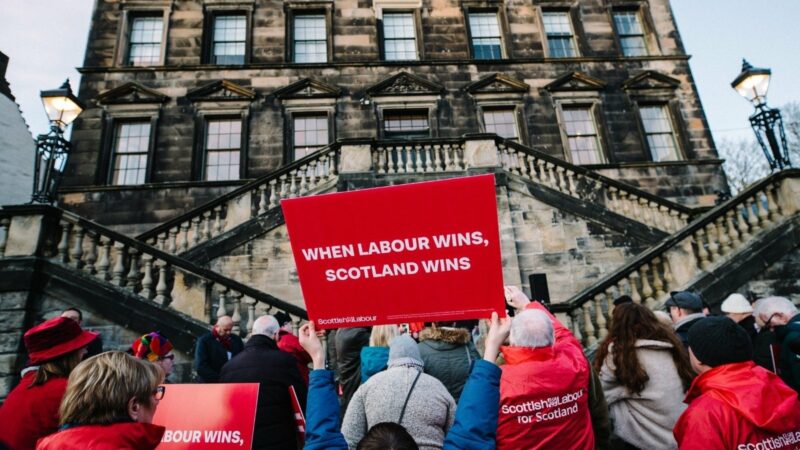
Polls like the one we saw yesterday on Scottish independence are often referred to as “wake up calls”. But if anyone hasn’t woken up yet, it’s only because they’ve been pressing the snooze button. That’s what it feels like for many of us in Scotland as we watch poll after poll signal the end of the UK, while colleagues in the Labour Party in the rest of the UK struggle to find a voice in the debate or don’t engage with it at all.
Whether we like it or not, the second independence referendum campaign is already underway, but only one side is making any arguments. Just as in the last referendum, the pro-independence side wants to create a sense of inevitable momentum while avoiding hard questions about the economics of independence or Scotland’s place in the world.
In the face of a Boris Johnson government, it can feel more and more difficult to make the case for keeping the UK together. That’s why we need Labour voices across the UK making the case for solidarity and for pooling and sharing resources.
We should learn from our loss in the European referendum. For too many years, Labour failed to make the case for Europe. While the party was pro-European, it didn’t want to shout about it too loudly. When the referendum came, that failure caught up with us.
The same is true with our arguments for the United Kingdom. The Labour Party is a pro-UK party. But since 2014, the party outside of Scotland seems to have become reluctant to make that case meaningfully. We shouldn’t wait for an official starting gun to start Labour’s campaign to keep our country together. It should happen now, and that case should be built on three pillars.
The first is jobs and economic security. The SNP want to dismiss the costs of independence. But as Labour Party members, we know that economics is fundamentally linked to opportunities and life chances. A strong economy matters because it is the key to ending poverty.
The economic case for separation is no stronger now than it was in 2014. Since then, the SNP’s own Growth Commission has demonstrated the extent of the austerity that would have to be imposed on Scotland – and that was before the Covid crisis added billions to the balance sheet. There is no certainty that an independent Scotland would be able to rejoin the EU and whether the terms would be as favourable as before. And with a smaller tax base, there are questions to be asked about what a Scottish social security and pensions system would look like.
The second is reform of the United Kingdom. We are not a party of the status quo. Coronavirus and Brexit has shown that the way we govern the UK is not fit for purpose. We need a programme of constitutional reform as ground-breaking as we had in 1997.
That could mean abolishing the House of Lords to create a Senate of the Nations and Regions. Handing even more power to elected mayors and local government in England to begin to address the disparity of powers at different levels across the UK. Codifying the way all levels of government work together to reflect the fact that the way we run our country has changed and that Whitehall’s writ no longer runs across the whole of the UK. Making government even more transparent by reforming Freedom of Information laws to further increase openness and transparency.
The third pillar is solidarity. Yesterday’s poll asked whether Scots thought a convincing argument to stay in the UK was that “in spite of current challenges, the different countries of the UK still have more in common than divides us”. 60% agreed. While many Scots may feel, politically, Scotland and England are going in different directions, the people of Scotland think that we still have more in common with people in other parts of the UK.
Boris Johnson may be one of the biggest risks to the future of our country, but it appears Scots still have faith in people (if not politicians) south of the border. That’s why our Labour campaign for the UK has to be a people’s campaign – not a campaign of politicians. It needs to give voice to people from the north of Scotland to the south of England who want the UK to continue.
While the decision about Scotland’s future should, rightly, be taken by people who live in Scotland, people from across the UK who believe in carrying on our partnership should make their voices heard. Let us not repeat the mistakes of the EU referendum and realise too late what is at stake and what could be lost. Let’s start making the case today.




More from LabourList
‘The hope that kills you’: Reflections from the final day in Gorton and Denton
MPs, union leaders and organisations react to ‘bruising’ Gorton and Denton result
A gory night for Labour